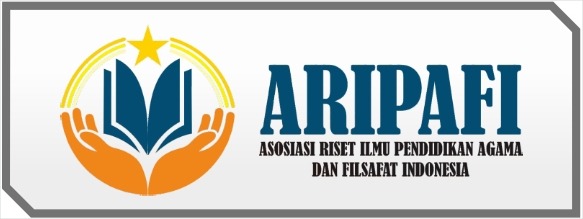Jurisdiction Of Charity Tradition In Strengthening The Generous Character Of Students Of TPQ Daarul Hamdi Ulujami Jakarta Selatan
DOI:
https://doi.org/10.61194/ijis.v1i1.39Keywords:
Compassion, , character and charity, TPQ Darul HamdiAbstract
As social beings, humans in living life will definitely depend on other humans. Therefore, religion provides teachings to spread love between people, one of which is by giving alms as a form of reflection to create love between people. And to make a person who likes to give or someone who has the character of a donor requires habituation from an early age, because in terms of the character of Helen G. D. it gives an understanding that character is not inherited, but something that is built continuously day by day through thoughts and actions, thoughts for the sake of thought, action after action. As was carried out by TPQ Daarul Hamdi Ulujami South Jakarta, namely Friday charity activities for students every Friday as a reflection of the teachings of the prophet's hadith. it is hoped that students will have high social sensitivity so as to produce philanthropic characters. This research uses descriptive qualitative method. The purpose of this research is to cultivate characters that are in accordance with the values of Islamic teachings.
References
Amal, M. K. (2020). Towards a deliberative conflict resolution? a reflection on state inclusive response to sunni-shi’a tension in Indonesia’s democracy. Qudus International Journal of Islamic Studies, 8(2), 226–256. https://doi.org/10.21043/qijis.v8i2.7146
Auriol, E., & Platteau, J.-P. (2017). Religious co-option in autocracy: A theory inspired by history. Journal of Development Economics, 127, 395–412. https://doi.org/10.1016/j.jdeveco.2016.12.007
Bellamy, C. (2021). Being Muslim the Chhipa way: Caste identity as Islamic identity in a low-caste Indian Muslim community. Contributions to Indian Sociology, 55(2), 224–253. https://doi.org/10.1177/00699667211006954
Burde, D., Middleton, J. A., & Wahl, R. (2015). Islamic studies as early childhood education in countries affected by conflict: The role of mosque schools in remote Afghan villages. International Journal of Educational Development, 41, 70–79. https://doi.org/10.1016/j.ijedudev.2014.10.005
Fuad, K., Ifada, L. M., Setyawan, H., & Handayani, R. T. (2021). An Analysis in the Application of the Unified Theory of Acceptance and Use of Technology (UTAUT) Model on Village Fund System (SISKEUDES) with Islamic Work Ethics as a Moderating Effect. Lecture Notes in Networks and Systems, 278, 347–356. https://doi.org/10.1007/978-3-030-79725-6_34
Hamjah, S. H., Rahim, N. C. A., Hashim, N. M., Bahari, N., Zuliza Mohd, K., Majid, L. A., Saidon, R., & Illias, M. Z. (2022). A quantitative study on Muslim milk mother’s understanding of the Islamic concept of wet nursing. PLoS ONE, 17(5 May). https://doi.org/10.1371/journal.pone.0265592
Hidayah, N. (2019). Islamic Law and Women’s Rights in Indonesia: A Case of Regional Sharia Legislation. Ahkam: Jurnal Ilmu Syariah, 19(1), 19–38. https://doi.org/10.15408/ajis.v19i1.11717
Kabir Hassan, M., Fazlul Karim, M., & Sydul Karim, M. (2018). Experiences and lessons of cash Waqf in Bangladesh and other countries. Journal of Islamic Economics, Banking and Finance, 14(1), 102–123. https://doi.org/10.12816/0051170
Pollack, D., & Pickel, G. (2007). Religious individualization or secularization? testing hypotheses of religious change - The case of Eastern and Western Germany. British Journal of Sociology, 58(4), 603–632. https://doi.org/10.1111/j.1468-4446.2007.00168.x
Said, M. M., Muhammad, N., & Elangkovan, K. (2014). The continuity and change of Indonesia’s Islamic higher educational institutions in the amid of educational policy change. Asian Social Science, 10(6), 71–80. https://doi.org/10.5539/ass.v10n6p71
Sitti Mania, H. (2018). Evaluasi Pelaksanaan Program Character Building Training di Universitas Islam Negeri Alauddin Makassar. ISLAMIC COUNSELING Jurnal Bimbingan Konseling Islam, 2(1). https://doi.org/10.29240/jbk.v2i1.465
Alquran, an-Nisa ayat 114, Alquran dan Terjemahnya (Bandung: Departemen Agama RI, CV Penerbit Diponegoro, 2010).
Al-Raghib al-Ashfahani, Mu'jam Mufradat Alfazh al-Quran, (Beirut: Dar al Fikr, t. th.)
Muhammad ibn Mukram ibnu Manzur al-Anṣārī al-khazraji al-Mişri, Lisan al- 'Arab (Beirut: Dar Sadr, 1997).
Muhammad ibn Mukram ibnu Manzur al-Anṣārī al-khazraji al-Mişri, Lisan al- 'Arab (Beirut: Dar Sadr, 1997).
Muhammad Quraish Shihab, Tafsir Al-Quran al-Karim: Tafsir Atas Surat Surat Pendek Berdasarkan Urutan Turunnya Wahyu, (Bandung: Pustaka Hidayah, 1997).
Muhammad Fuadi al-Baqi, Al-Mu'jam al-Mufahras lialfazh al-Quran al Karim, (Bandung: Angkasa, t. th.)
Mahmud Yunus, Kamus Arab – Indonesia (Jakarta : PT. Mahmud Yunus, Wadzuriyah, 1990), 214.
Nurlaela Isnawati, Sepuluh Amal Shalih Yang Membuat Tubuh Selalu Sehat (Jogjakarta: Sabil, 2013).
Syekh Muhammad al-Ghazali, dalam Al-Musykilat fi al-Thariq al-Hayah al Islamiyyah, terj. Abdurrosyad Shiddiq, (Solo: Pustaka Mantiq, 1991) Terjemah Kemenag 2019
Trisno Yuwono & Pius Abdullah, Kamus Lengkap Bahsa Indonesia Praktis (Surabaya : Arkola, 1994).
T. Rohman, “Sedekah Dalam Al-Qur’an Surat Al-Baqarah Ayat 271 Menurut Tafsir Al-Munir Karya Wahbah Az-Zuhaili” (skripsi, STAIN Kudus, 2016), 13-14. 16 Gus Arifin, Keutamaan Zakat, Infak Dan Sedekah (Jakarta: PT. Elex Mediakomputindo, 2016).
Samani, Muchlas dan Hariyanto. 2011. Konsep dan model pendidikan karakter. Bandung: PT Remaja Rosdakarya Stiff, Helen R and Wil
Wahyu Indah Retnowati, Hapus Gelisah Dengan Sedekah ( Jakarta : Qultummedia, 2009.
Wawan Susetya, Tangan Di Atas Lebih Baik Daripada Tangan Di Bawah Menyelami Nikmatnya Bershadaqoh (Jakarta Selatan : Oryza, 2014)






